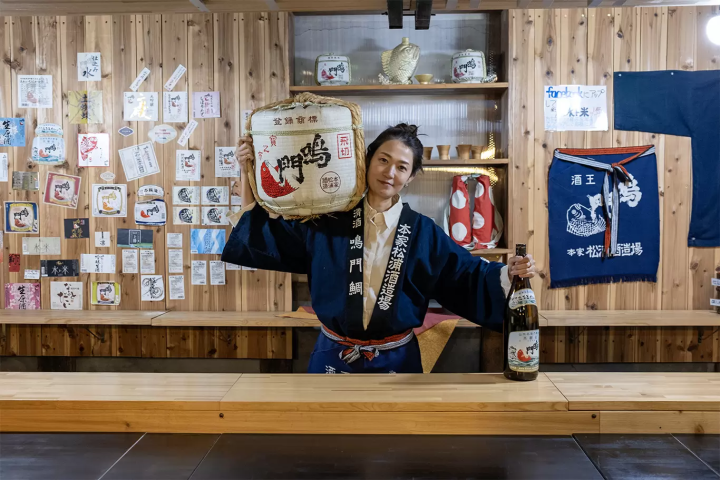Arigato Gozaimasu: Meaning, How to Say Thank You in Japanese

Arigato gozaimasu is a polite way to say thank you in Japanese. Learn its meaning, how to write in hiragana, and other polite phrases with their pronunciation.
Express Your Thanks in Japanese
Even if you don't understand Japanese, it's good to know how to express your appreciation in Japanese. In this article, we introduce several phrases for saying "thank you," from the casual "arigato" to polite phrases like "arigato gozaimasu" and others.
How to Say Thank You in Japanese
1. Arigato gozaimasu - Thank you
2. Domo arigato gozaimasu - Thank you very much
3. Hontoni arigato gozaimasu - Thank you so much
4. Arigato gozaimashita - Thank you (Past)
5. Iroiro arigato gozaimashita - Thank you for everything
6. Osewa ni narimashita - Thank you very much for everything
7. Kansha shiteimasu - I'm grateful to you
8. Orei wo moushiagemasu - I give you my humble thanks
9. Sumimasen - I'm sorry for your trouble
10. Sankyu / Azasu / Domo - Thanks!
How to respond to Thank You in Japanese
11. Ie ie - No problem
12. Tondemonai desu - Don't mention it
Similar Phrases and Mispronunciations
1. Arigato gozaimasu! / Thank you!
[arigato: gozaimas]
Arigato gozaimasu is a polite way of saying "thank you" in Japanese.
In hiragana, arigato gozaimasu is written ありがとうございます。It is not common to find it in kanji, but it can also be written as 有難う御座います。

Photo by Pixta
Arigato gozaimasu is the best phrase to express your gratitude in Japanese because it can be used in any situation, no matter how formal or casual.
You can use it toward people who helped you during your trip with advice or directions, you can use it at restaurants, hotels, and Japanese culture workshops, and you can also use it toward Japanese friends you made during your travels.
While traveling in Japan, this is the "thank you" phrase that you'll probably be using most often.
"Arigato" is for Friends
"Arigato" is a casual way of saying "thank you", usually used toward family, your partner, and friends who are the same age or younger than you.
When expressing thanks to a stranger or person older than yourself, especially toward teachers or your seniors at work, you should definitely use the polite version: "arigato gozaimasu".
Most of the people you talk to during your trip will probably be strangers. For example, you should say "arigato gozaimasu" to shop or hotel staff.
2. Domo arigato gozaimasu / Thank you very much
[do:mo arigato: gozaimas]
Domo arigato gozaimasu is for situations when you want to be even more polite.
3. Hontoni arigato gozaimasu / Thank you so much
[honto:ni arigato: gozaimas]
If you want to emphasize your appreciation, you can say Hontoni arigato gozaimasu. If you want to be a little more casual, you can say Hontoni arigato [honto:ni arigato:].
"Hontoni" means "truly", "really."
A similar phrase is Makotoni arigato gozaimasu, in which "makotoni" means "sincerely."
4. Arigato gozaimashita / Thank you (Past)
[arigato: gozai mashta]
When you want to say thanks upon leaving after being helped at a shop or being guided around town for a day, you should say Arigato gozaimashita instead of Arigato gozaimasu.
Also, if you're writing an email to someone who helped you out in Japan after you've returned home, you'll be using Arigato gozaimashita.
This is not only the past tense form of Arigato gozaimasu; it also signifies that the action you are grateful for has been completed.
If the person you're talking to is someone you know well, you can just use the casual version "arigato".
5. Iroiro arigato gozaimashita / Thank you for everything
[iroiro arigato: gozai mashta]
If someone helped you out with various things throughout your trip, you can try saying Iroiro arigato gozaimashita.
It's casual form is "iroiro arigato".
The word "iroiro" means "various things", "many things", or even "everything". This is a general phrase you can use to thank someone for more than one situation.
6. Osewa ni narimashita / Thank you very much for everything
[osewa ni narimashta]
"Osewa" means help, aid, assistance, and "osewa ni naru" means "being taken care of", "being assisted properly."
If you stay at a Japanese guesthouse and your host is kindly cooking for you or making sure that you have all you need, at the end of your visit, try to thank them with Osewa ni narimashita.
While polite, this phrase is a little more personal than Arigato gozaimasu. If you say Osewa ni narimashita, you're thanking that person for their kindness, not only for doing their duty as part of their work.
7. Kansha shiteimasu / I'm grateful to you
[kansha shite imas]
"Kansha" is the Japanese word for "gratitude" so Kansha shiteimasu means "I'm grateful to you", "You have my gratitude."
You can use this phrase after saying Arigato gozaimasu in order to emphasize the degree of your gratitude.
8. Orei wo moushiagemasu
[ore: wo mo:shi agemas]
"Orei" means "thanks" and combined with "moushiagemasu," which means "to say," this phrase literally means "I give you my humble thanks."

Kaiseki cuisine at Asakusa Saryo Ichimatsu. Picture courtesy of Wabunka
This is a highly formal phrase that you can use, for example, if someone in Japan took you to a high-class Japanese restaurant (ryotei) and offered you the chance to taste kaiseki cuisine.
Dining at a ryotei is a very expensive affair, usually kept for anniversaries and special occasions. If a Japanese acquaintance was kind enough to invite you to a ryotei, thank them for this precious opportunity with Orei wo moushiagemasu.
Kokoro kara orei wo moushiagemasu is what you can use to show your utmost gratitude because "kokoro kara" means "from the bottom of my heart."
9. Sumimasen / Sorry
[sumimasen]
Sumimasen is a polite way to apologize for the trouble that someone took to assist you, so it counts as a way to express gratitude.
Gomen (Casual)
[gomen]
Gomen has the same meaning as Sumimasen but it can only used between friends.
If you say "sumimasen" or "gomen" (both meaning "sorry) along with "arigato gozaimasu", you will sound more polite.
Examples:
Arigato gozaimasu, sumimasen.
Arigato, gomen.
These words are probably words you'll learn as phrases for saying "sorry".
Why do the Japanese say "sorry" also when expressing their thanks? This is because by apologizing, they are expressing their thanks and sorry for the time and/or work it took for someone to help them.
If someone helped you in a way that used their own money or time, you can try saying "sumimasen" along with the usual "thank you" to express your understanding of the sacrifice they made for you.
10. Sankyu / Azassu / Domo - Thanks!
[san kyu] [azass] [do:mo]
Sankyu, Azassu, and Domo are casual ways of saying "Thanks!" to your buddies in Japan.
- Sankyu is a playful pronunciation of "Thank you!"
- Azassu is an abbreviated and very casual form of Arigatou gozaimasu.
- Domo originates in Domo arigato gozaimasu, which we introduced above.

Photo by Pixta
Please be aware, though, that you have to be really close friends with someone to use these casual phrases.
For example, after taking part in an izakaya bar hopping tour where you enjoyed several drinks with Japanese participants and helped each other reach the nearest station safely, you could say that your bond is strong enough to tell them Azassu!
11. Ie ie / No no (Not at all, No problem)
[ieie]
A phrase that you will often hear as a reply to Arigato gozaimasu is Ie ie.
You might've learned that "you're welcome" in Japanese is "do itashimashite", but actually, this phrase isn't used very often in present day.
12. Tondemonai desu / Don't mention it
[tondemo nai des]
"Tondemonai" literally means "No reason" or "Nonsense," so Tondemonai desu is a polite way of saying "Don't mention it" as a reply to being offered thanks.
If you want to express reciprocal thanks in Japanese, try using Kochira koso arigato gozaimashita, which means "The pleasure is all mine."
There are various ways of replying to Arigato gozaimasu. It might be fun to write down as a memo to yourself what different people say when you say your thanks to them.
Similar Phrases and Mispronunciations
Arigato gozaimasu is easy to mispronounce. However, you shouldn't be worried.
The "u" at the end of "gozaimasu" is not usually pronounced so "arigato gozaimas" is perfectly correct!
On the other hand, arigato sai mas might not come through unless you accompany it with a bow or a deep nod that suggests gratitude.
Azamas is also a mispronunciation but it's been used so often in casual speech that it became another way of saying thank you among friends, just like "azasu."
Our advice would be not to worry much about pronunciation as long as your gestures are polite and convey gratitude.
Review
1. Arigato gozaimasu! / Thank you!
[arigato: gozaimas]
2. Domo arigato gozaimashita / Thank you very much
[do:mo arigato: gozaimas]
3. Hontoni arigato gozaimasu / Thank you so much
[honto:ni arigato: gozaimas]
4. Arigato gozaimashita / Thank you (Past)
[arigato: gozai mashta]
5. Iroiro arigato gozaimashita / Thank you for everything
[iroiro arigato: gozai mashta]
6. Osewa ni narimashita / Thank you very much for everything
[osewa ni narimashta]
7. Kansha shiteimasu / I'm grateful to you
[kansha shite imas]
8. Orei wo moushiagemasu / I give you my humble thanks
[ore: wo mo:shi agemas]
9. Sumimasen / Sorry.
[sumimasen]
10. Sankyu / Azassu / Domo - Thanks!
[san kyu] [azass] [do:mo]
11. Ie ie / No, no. (Not at all/No problem)
[ieie]
12. Tondemonai desu / Don't mention it
[tondemo nai des]
Make use of these seven phrases to express your gratefulness in a variety of situations.
FAQ
How do you say no thank you in Japan?
In Japanese, "no, thank you" can be expressed as "iie, kekkou desu". This phrase is a polite and formal way to decline something.
What is the best way to say thank you in Japanese?
Arguably, the best way to say thank you in Japanese is Arigato gozaimasu because this phrase can be used in any situation, no matter how formal or casual. With any other phrase, you risk being either too formal or too casual, but you can't go wrong with Arigatou gozaimasu, which literally means "Thank you" and conveys your sincere gratitude.
What is polite etiquette in Japan?
Polite etiquette in Japan includes practices such as bowing as a greeting, removing shoes indoors, showing respect for elders and hierarchical structures, using polite language and honorifics, observing respectful business card exchanges, maintaining proper public behavior, practicing gift-giving customs, and following specific dining etiquette. These customs demonstrate respect for Japanese culture and society and contribute to positive and courteous interactions.
How do people show respect in Japan?
People in Japan show respect through politeness in speech, including using formal language forms, bowing as a gesture of respect, removing shoes when entering certain spaces, acknowledging and respecting hierarchies in various contexts, considering the impact of their actions on others, and adhering to customs and etiquette in social interactions and daily life. These practices collectively demonstrate a deep respect for both individuals and cultural traditions in Japan.
What should we say after thank you in Japanese?
In Japanese, a common response to "thank you" is "dou itashimashite" which means "you're welcome." Another informal response is "douzo," which can be used to invite someone to do something or to accept something, similar to "you're welcome" in English.
What is not polite in Japan?
In Japan, various actions are considered impolite. For instance, speaking loudly in public places, especially on public transportation, showing the soles of your shoes, pointing, or gesturing rudely are typically viewed as impolite. Additionally, blowing your nose in public, being overly assertive, arriving late, and touching someone without permission are behaviors to be avoided as they may come across as disrespectful or impolite in Japanese culture.
Read also
A Japanese teacher, calligrapher, singer in my room!







































![[Niigata] Skiing and snowboarding are just not enough! Fun snow spots for parents and children](https://resources.matcha-jp.com/resize/720x2000/2026/01/29-256901.webp)


![[Gunma, Nakanojo] Experience Japanese history in a wooden school building from the Meiji era](https://resources.matcha-jp.com/resize/720x2000/2025/12/25-254022.webp)
